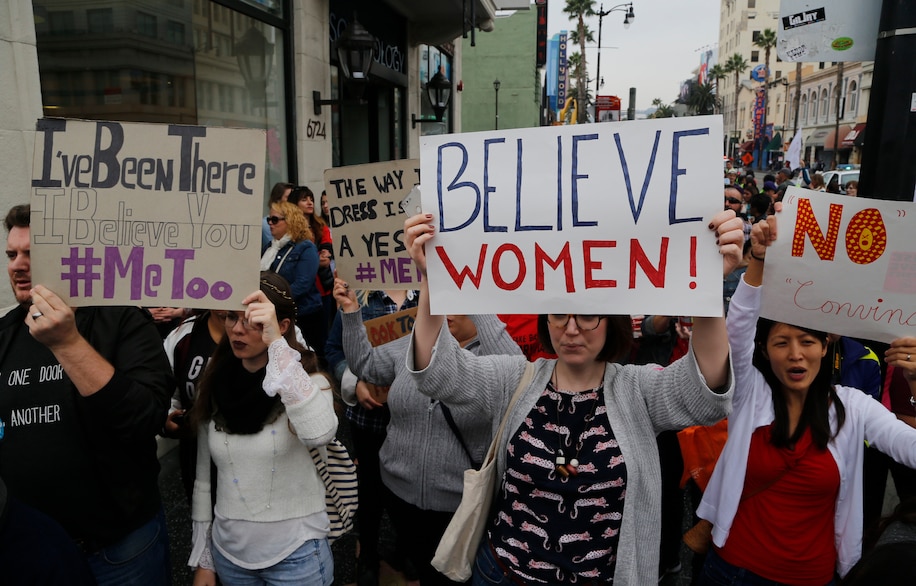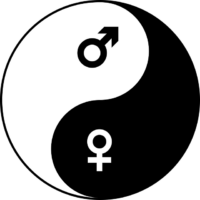

Did Amber Heard Just End the Me Too Movement?
There is a significant part of me that cannot believe I am going to write about this. I could really give two shits and a fig leaf about either Johnny Depp or Amber Heard, and as such, have made a conscious effort to remain blithely ignorant of all things related to the absurdist theater that was their marriage and its inevitable demise. It was only when my kids asked me about the trial after hearing about it in various group chats that I even knew that this was a defamation case initiated by Johnny Depp after Heard publicly aired allegations of physical and sexual abuse that damaged Depp’s career. Now to be honest, I never really give a damn about the personal lives of celebrities, and it would have seemed to me that Depp’s career was much more likely undone by his cliched acting in the last couple installments of the Pirates of the Caribbean series and his hopelessly contrived broodiness in those vapid Dior commercials. But then I watched a commentator on the news asking if the verdict in this case signaled the end of the Me Too movement, and I just about lost my everlasting mind because this case should not and will not hamper the Me Too movement itself, but it does signal its inherent and necessary boundaries.
Again, I will assertively acknowledge that I watched absolutely none of the testimony in this trial and followed nothing of the public debate regarding the potential outcome. That said, what I can tell you is that defamation cases are incredibly difficult to argue and very rarely result in a victorious verdict for the plaintiff. The reason for this is that the legal burden is so unbelievably high, with the plaintiff needing to demonstrate with a preponderance of the evidence (remembering that this is a civil, not a criminal, case) three essential elements of the case: 1) That the defendant publicly engaged in a series of false allegations regarding the plaintiff, 2) That the defendant knew these allegations were indeed false and spread this misinformation in order to do harm to the reputation of the plaintiff, and 3) That these false allegations had material ramifications to the detriment of the plaintiff, especially in regards to their vocational capacity. The most difficult hurdle in most of these cases is, of course, proving that the defendant KNEW they were spreading false information about the plaintiff. So even though I may not have watched a minute of this cringe-worthy testimony, I have to say that if seven independent jurors all voted in favor of Depp in this case, I feel confident suggesting that they had more than ample reason to believe that Amber Heard was lying when she accused Depp of physical and sexual abuse and knew damn well that she was doing so.
Which brings me back to the implications this case has for the Me Too movement. Now I certainly hope that we can all agree that the Me Too movement has represented a much-needed exposure of the heinous acts of sexual abuse, intimidation, and harassment that women are subjected to on a routine basis. For far too long, women were told to keep their mouths shut as these insipid and cowardly crimes were swept under the rug by a criminal justice system that seemed intent on enabling the men who perpetrated them. But if anything, perhaps this jury’s response to Amber Heard is an indication that the pendulum has swung too far in the other direction and that there are indeed limitations on weaponizing accusations of sexual victimization.
 There are some supporters of the Me Too movement who push the credo that “All women should be believed”. But this flies in the face of the very principles upon which our criminal justice system is rooted. Yes, the Me Too movement has rightfully demanded that women finally be granted the equal protection of and accessibility to the law, meaning that they should always have a voice and be heard. But that does not mean that they should always be believed. To uniformly believe any accuser’s testimony without any scrutiny whatsoever is to undo the very notion of innocence until proven guilty that is the underpinning of American criminal trials. While we need to assure every potential victim of sexual assault that they will be given a fair and equitable hearing, we cannot simply reverse the criminal standard for burden of proof for one set of crimes without undoing the legitimacy of the entire court system itself.
There are some supporters of the Me Too movement who push the credo that “All women should be believed”. But this flies in the face of the very principles upon which our criminal justice system is rooted. Yes, the Me Too movement has rightfully demanded that women finally be granted the equal protection of and accessibility to the law, meaning that they should always have a voice and be heard. But that does not mean that they should always be believed. To uniformly believe any accuser’s testimony without any scrutiny whatsoever is to undo the very notion of innocence until proven guilty that is the underpinning of American criminal trials. While we need to assure every potential victim of sexual assault that they will be given a fair and equitable hearing, we cannot simply reverse the criminal standard for burden of proof for one set of crimes without undoing the legitimacy of the entire court system itself.
Believe it or not, some women lie about sexual assault. That does not take away from the vast preponderance of cases where women level legitimate accusations against the perpetrators of sexual assault or harassment. But it does mean that as with all criminal defendants, there must be a presumption of innocence for the accused and that the accuser must prove their allegations beyond a reasonable doubt. Of course, these crimes are horrifying and devastating, but so too is murder and countless other crimes where we have firmly established the “beyond a reasonable doubt” standard. We want to encourage the victims of these crimes to come forward and confront the men who have wronged them, but we also need to maintain the checks and balances that have been the backbone of our criminal justice system, so that the courts cannot simply become the weapon of undeserved vengeance.
The verdict in this case suggests that there are indeed limits on accusations of sexual assault, primarily that those accusations must indeed be true and that while women should always be heard, that there are repercussions for those who level false allegations. Should this impact the Me Too movement or discourage the legitimate victims of sexual assault or harassment from coming forward? I certainly hope not, as these women need to know that they will be granted a voice by the justice system. But it may just signal to those who would use the court system under false pretenses that you can’t just shit on someone else’s life (or their pillow) and get away with it.
Steven Craig is the author of the best-selling novel WAITING FOR TODAY, as well as numerous published poems, short stories, and dramatic works. Read his blog TRUTH: In 1000 Words or Less every THURSDAY at www.waitingfortoday.com


